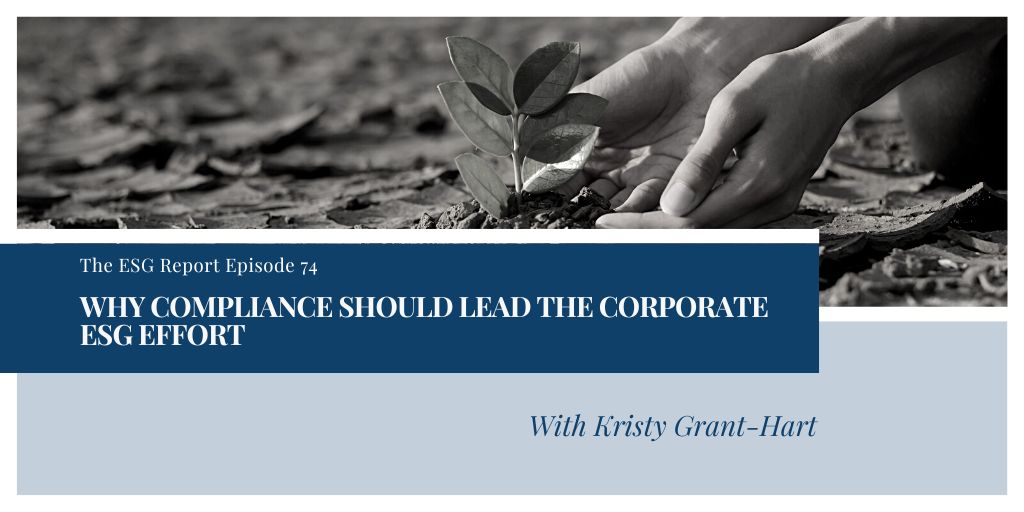
What does remodeling a home have to do with ESG? In this episode of the ESG Report, Tom Fox and Kristy Grant-Hart discuss the role of compliance in leading the ESG initiative within a corporation. Kristy, the founder of Spark Consulting, explains how compliance professionals can expand their role to lead the E, S and G components of ESG. She also shares her personal experience of remodeling her new home with her husband and how it relates to ESG.
Kristy Grant Hart is a well-known figure in the compliance field. She is the founder and CEO of Spark Consulting, a global compliance and ethics consultancy that recently celebrated its 6th anniversary. Spark Consulting now has locations in Chicago, New York, Los Angeles, and London. The company also recently released a business simulation game called Compliance Competitor, which has been picked up by many companies. Kristy has over 15 years of experience in compliance and governance, working with clients across multiple industries. She is also the author of four books, including How To Be A Wildly Effective Compliance Officer and The Compliance Entrepreneurs Handbook, which was written with Kirsten Liston and Joseph Murphy.
You’ll hear Tom and Kristy talk about:
- ESG is a bridge between compliance, governance, and board relationships.
- ESG can be a huge driver for change and reputation enhancement.
- CCOs are skilled at bringing together people and putting programs into a framework, and this lends itself well to running a successful ESG program.
- The renewed focus on G (Governance) is a positive development, as better governance leads to more ethical behavior and compliance. Compliance has a relationship with the board, the Audit and Risk Committee, and it makes sense for compliance to expand its remit of reporting and talk about different stakeholders in different ways for better board management.
- The push for gender diversity on boards is a step towards greater perspective and understanding of different stakeholders.
- Supply chain management is an important aspect of the compliance function.
- The June 2020 Update to the Evaluation of Corporate Compliance Programs from the Department of Justice emphasizes the importance of institutional justice and fairness within corporations, which ties into ESG principles.
- The compliance function and CCO must have access to all corporate data, not just compliance data, in order to effectively lead ESG efforts.
- The S in ESG, which stands for social, encompasses issues such as diversity, equity and inclusion, and responsible sourcing in the supply chain.
- The evolution of supply chain compliance and its integration into ESG efforts has been growing in recent years.
- Compliance professionals already have a wide range of skills and experience that can be applied to leading E efforts within ESG. They have an important role to play, even if they are not experts in the field.
- Remodeling a home can also be a valuable learning experience: her personal experience of learning new construction skills aligns with the idea that compliance professionals can learn and lead the E component of ESG.
KEY QUOTE:
“I think that the more that we see diversity on boards, the better companies will do, but also the opportunities become more expansive and that’s something that I’m passionate about and feel that’s incredibly important. I also think compliance should have much more of a seat on boards.” – Kristy Grant Hart
Resources:





